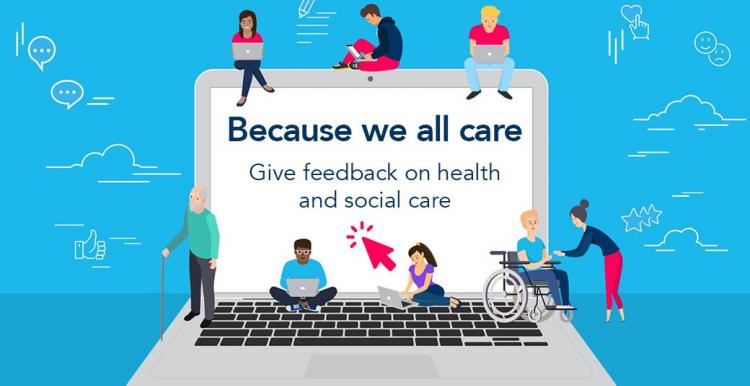Because We All Care Campaign

CQC research reveals that people with a learning disability and autistic people are more reluctant to give negative feedback on their care in case it increases pressures on staff or services. This is why CQC is calling on people with a learning disability and autistic people, and their loved ones, friends and carers to give feedback on their care. Throughout the pandemic CQC has acted on the intelligence it receives to ensure high quality care and people’s human rights are safeguarded, with over 3500 risk-based inspections completed since April 2020.
CQC has made improving care for people with a learning disability and autistic people a priority, which is why Debbie Ivanova, the Deputy Chief Inspector of Adult Social Care is leading a new programme of work to transform the way they regulate services for people with a learning disability and autistic people. This work will focus on improving the way they register, monitor and inspect services and use the full scope of their regulatory powers.
Families and people with lived experience keep telling us that it’s so much harder to speak up in services that care for people with a learning disability or autistic people, and we’ve recognized this.
The CQC’s Out of Sight report last year found many shocking examples of undignified care. And our own research suggests two in three autistic adults don’t get the support they need
CQC’s research showed that people with a learning disability and autistic people are more likely to accept health and social care providers offering a lower standard of care as a result of coronavirus and that more than a quarter (27%) of survey respondents with learning disabilities and autistic people had noticed a lower standard of safety when accessing health and social care during the COVID-19 pandemic–more than double the average.
In order to address issues around closed cultures, CQC released a report in October 2020, ‘Out of Sight-who cares?’– it found that many people with a learning disability and or autistic people are still being looked after in unsuitable hospital environments, and some are subject to high levels of restrictive practice. People with a learning disability and autistic people should be cared for either in their own home, or in their communities, with as much choice as possible.
People told CQC how they ended up experiencing restrictive practices because care hadn’t been provided at the right stage, in the right way. They often reached out for help in the community and didn’t receive it, or the help they received did not meet their needs.
CQC will always call out poor care when it sees it and is working with the rest of the system to influence change–and getting feedback from people with lived experience is essential to this.
The Because We All Care campaign
The Because We All Care campaign reaches its latest landmark date in the ongoing campaign this Thursday, 4 March, with a particular focus to encourage people with a learning disability and Autistic people to share their feedback and experiences on care with CQC. People can give feedback on their experiences of care, or those of someone they care for, on the CQC website or through their local Healthwatch. Local Healthwatch organisations can also help you with advice and information to access the support you need.
About the Care Quality Commission (CQC):
CQC is the independent regulator of health and adult social care in England. CQC makes sure health and social care services provide people with safe, effective, compassionate, high-quality care and they encourage care services to improve. CQC inspects health and social care services across the country and produces free, independent inspection reports to help individuals make an informed decision about where to turn to for their care. Each report assesses whether the services are safe, effective, compassionate and high quality. CQC do not have responsibility for resolving individual complaints, however CQC encourages people who experience or know about poor care to inform the regulator to inform their inspection programme.


